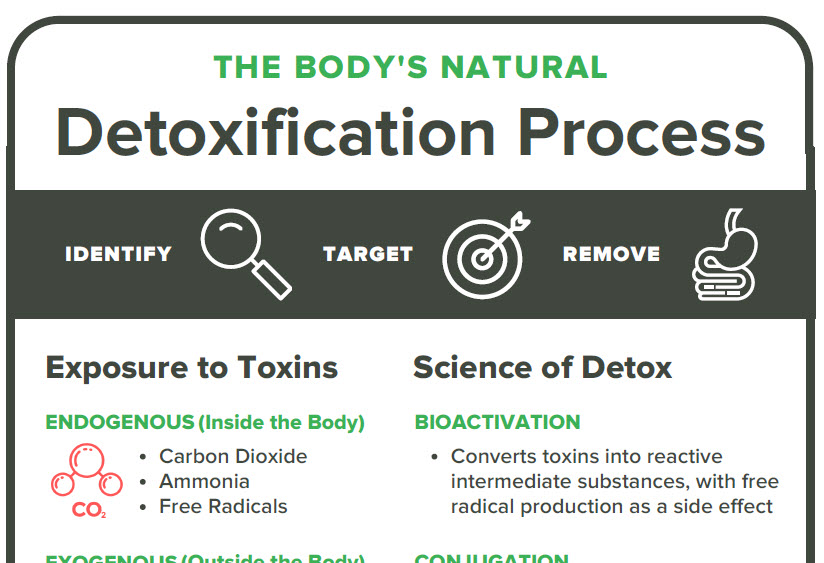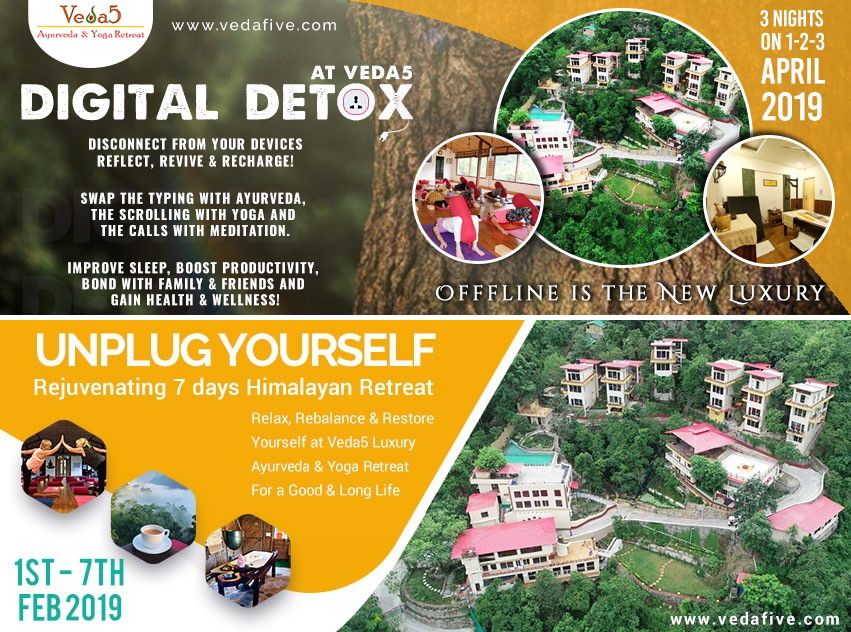Detox tourism has emerged as a new form of wellness tourism. It simply means detox retreat visits, spas, or health resorts that are solely designed to detoxify and revitalize both the body and the mind. Detox tourism enables travelers to take part in detox programs so that any chemicals causing fatigue can be purged from the body, thus promoting holism.
This article delves deep into detox tourism, how popular this trend has become, methods used, benefits reaped, top destinations, and future trends.
What is detox tourism?
Detox tourism falls within the category of wellness tourism where its main aim is the restoration of health through holistic detoxification techniques. Detoxification simply refers to the body’s process of eliminating toxic materials from the body, balancing the system in the body, and rejuvenation the body. Thus, detox programs may include diet, treatments at spas, fasting, exercise, and meditation, among others, specially formulated to contribute to purifying the body from built-up contaminants from pollution, junk foods, stress, and other lifestyle factors.

Detox tourism appeals to passengers who want to get out of unhealthy habits, go for a rebirth, or, at least, take some time off. It derives the benefits from traveling, rest, and wellness, making it an extraordinary type of vacation. Detox tourism usually includes practices from traditional medicine, alternative therapies, and modern science on detoxification, in an all-inclusive detoxification program tailored to each client’s needs.
Rise of Detox Tourism
Detox tourism has become extremely popular in the past ten years. A growing emphasis on wellness, self-care, and mental health globally means that increasingly more are interested in detoxification and travel-based lifestyle management. Several factors explain the increased interest in detox tourism:
Because the wellness industry has reached its peak in recent years, these days people are looking to get healthier than to seek medical treatments. It helps them with detoxification, which is a broad prevention-based approach. It has both workplace-related and personal pressures that lead to stress, burnout, and general unhealthy living. Detox tourism helps to get rid of such chronic stressors and rejuvenate.
Digital Detox: Due to increased screen time and dependency on digital, detox retreats have also introduced “digital detox” programs wherein guests disconnect from their devices and social media, thus creating awareness and promoting relaxation.
Environmental Toxins: Pollution and chemicals in food and products cause health issues; detox tourism offers a controlled environment to minimize exposure to toxins and focus on living healthy, and clean.
Post-Pandemic Self-Care: The health and immunity awareness created through the COVID-19 pandemic has kept many practicing detoxes on a greater scale to advance wellness while avoiding diseases.
Well-Known Detox Tourism Practices and Techniques
Detox tourism is becoming popular and encompasses various techniques that target cleansing of the body, balancing the mind, and generally boosting well-being. The techniques vary depending on the country, cultural orientation, and personal health objectives.
1. Juice and Plant-Based Detoxes
Detox retreats feed the body with fresh fruits, vegetables, and herbs to maintain a typical condition of juice cleansing and plant-based diets. High vitamin, mineral, and antioxidant levels allow for cellular repair and digestion for natural cleansing.
2. Fasting and Intermittent Fasting
Most detox programs involve fasting, which makes one stop eating for a certain period to give the digestive system a complete rest. Intermittent fasting has become very popular because it helps rebalance metabolic procedures, thus regulating digestion and improving weight reduction.
3. Colon Cleansing and Hydrotherapy
Detoxification programs commonly include colon hydrotherapy, also known as colon cleansing. It seeks to eliminate toxins in the digestive tract through the injection of water into the colon, improving digestion and energy. Though its principles remain widely discussed, the practice of colon cleansing remains very popular in detox tourism activities.
4. Herbal Remedies and Supplements
Many detox retreats also employ herbal remedies, teas, and supplements to help assist in liver function, digestion, and overall immunity. The typical herbs used in the process of boosting liver detoxification are milk thistle, dandelion, and turmeric.
5. Exercise-Physical Detoxification
Detox programs consist of exercise as one of its major components. Sports like yoga, hiking, Pilates, or any other kind of exercise induce sweating that removes the toxin out of the body. Most often, yoga is practiced to detoxify because it combines exercise and breath control with a focus on mental concepts.
6. Mindfulness and Meditation
Mental detoxification is as important as physical detoxing, and most detox retreats realize meditation, mindfulness, and stress-relief practice. Meditation calms the mind, lowers stress levels, and brings mental clarity. Moreover, mindfulness encourages one to be more aware of the present moment, thus creating peace and grounding.
7. Spa Therapies and Treatments
Detoxification support also encompasses spa therapy in the form of massage, steam baths, saunas, and mud baths. These treatments stimulate the lymphatic system to drain, increase blood circulation, and help relax the body. Steam baths and saunas stimulate detoxification through sweat, while massages promote proper blood flow to the cells and support effective lymphatic drainage.
8. Digital Detox Programs
Many detox retreats offer digital detox programs. It is here that guests disconnect from devices and focus on the real world. Digital detoxing relieves stress, helps to get good sleep, and enhances mental focus by cutting off exposure to digital overload.
Best Detox Tourism Destinations
The best detox tourism destinations are calm environments offering specialized expertise and a variety of detox programs to help the visitor disconnect and rejuvenate. Here are some of the best destinations around the globe:


1. Thailand
Thailand is a pioneer in detox tourism, known for wellness resorts and tropical beauty. Luxury detox centers abound in places like Phuket and Koh Samui, and their programs range from juice cleansing and fasting to retreats in yoga and spa treatments. One of the known places with comprehensive detox programs is Kamalaya in Koh Samui.
2. India
Ayurveda and yoga are held in the land of India, making it one of the most preferred destinations for holistic cleansing. Rishikesh, Kerala, and Goa offer detoxes which consist of Panchakarma body cleansing, yoga, meditation, and a vegetarian diet to be completed in perfect sync.
3. Bali, Indonesia
Another perfect destination for detox tourism is the island of Bali, which has peaceful surroundings and a very healthy-focused society. There are so many wellness retreats offering juice cleanses, raw food diets, yoga, and spa therapies that provide several detox options centered on natural healing and spirituality.
4. Spain
Spain has a Mediterranean climate and top-ranked wellness resorts, making it an important detox tourism destination. Marbella and Ibiza are famous for luxurious detox programs that involve juice cleanses, fitness training, and spa therapies. One of the most popular detox and wellness centers on the European continent is the SHA Wellness Clinic in Alicante.
5. Costa Rica
Costa Rica is a beautiful destination to have an eco- detox, amidst its lush green rainforests and global stance on eco-tourism. More organic retreats here mean higher juice cleanses, mindfulness practices, and adventure activities in pristine natural surroundings.
6. California, USA
Among them, California attracts many detox and wellness centers. It has such places in Palm Springs and Malibu. A large selection of detox programs are offered here: from juice fasting and raw diets to spa treatments and mental wellness workshops.
7. Portugal
Detox tourism is highly popular in Portugal due to the country’s natural beauty and luxury wellness facilities. Vilalara Longevity Thalassa & Medical Spa, located in the Algarve, offers detox programs specializing in holistic health, diet, and personal wellness services.
Benefits of Detox Tourism
Detox tourism offers various physical, mental, and emotional benefits because such tourism provides an intense and focused approach to health and wellness. Some of the prime benefits include:
Physical Renewal: The body detoxification process ensures the removal of toxins, promotes the activation of digestion and revitalizes energy levels, improves skin, and increases the participant’s metabolic rate and immune system efficiency.
Mental Clarity and Reduced Stress: Detox retreats entail meditation or mindfulness exercises for stress reduction as well as enhancing focus. This disconnection from typical lifestyles, burdens, or tasks and responsibilities allows travelers to rejuvenate and achieve mental clarity.
Improved Sleep: For example, detoxification can improve sleep patterns by removing toxins with healthy habits such as digital detoxing, which changes the quality of sleep.
Weight Management: Detox programs are mostly meant to help people lose weight or maintain a healthy weight as achieved through dietary changes, fasting, and engaging in physical activities.
Development of Healthy Habits: Detox programs offer the space to guests to develop habits, from mindfulness about eating to real exercise and stress management. This helps people with holistic approaches toward sustainable lifestyle changes even after leaving the retreat.
Increased Self-Awareness with Mindfulness: Tourism detox allows individuals to realize again where they are and who they are. With a reduction in distractions, they become more aware of themselves; besides, mindfulness exercises along with holistic approaches in these guest houses make them well-informed about their health and well-being.
The Role of Detox Tourism in Sustainable and Responsible Travel
Detox tourism follows well in the sustainable travel sense because it is often associated with the promotion of ecologic practice, the sourcing of local products, and raising awareness about the environment. It contributes positively to the environment and to communities by supporting the growth of their local economies, making them more practical in their ways.
Ecological Practices: Most detox retreats focus on being ecological; for instance, they involve organic farming, sustainable building, and waste management. Detox tourism therefore encourages the appreciation of nature to a higher level through the encouragement of eco-aware behavior.
Supporting Local Communities: Detox retreats are engaging local products in their services by sourcing ingredients locally. They engage local farmers to produce what they need while engaging locals as employees, hence allowing them to work while at the same time boosting the economy within the community.
Giving Environmental Consciousness: The detox tourism process instills a sense of responsibility towards the environment, which will further motivate people to be conscious in their daily lives, which most of the time they take back from the travelers.
Future Trends in Detox Tourism
Health and wellness trends have much promise for detox tourism. The future of detox tourism is about personal wellness, technology, and sustainability.


Personalized Detox Programs: Due to the ongoing rapid development in diagnostics in health and genetic testing, detox tourism is likely to be more personal. Resorts may offer specific programs tailored to specific guests’ needs based on genetics, diet, and lifestyle.
The Digital Detox Emphasis: The emphasis of digital detox programs may probably increase due to the experience of being off of technology for a while, with the focus being on mental clarity and attention. Strategies are likely to be presented for balance around the need for technology upon return home.
Integration with Preventive Health: More people embracing wellness as a form of preventive health will increase detox tourism and grow into a whole program, while immunity and stress management are implied for holistic health options.
Increased Focus on Mental Health: Detox tourism should emphasize more on mental well-being through meditation, counseling, and self-care practices; that is going to be a haven for inner healing and, at the same time, promote mental well-being.
Conclusion
Detox tourism is not a trend; it’s more like an experience transformed to help travelers simply reset, recharge, and reclaim health. Combining the traditional detox methods with modern wellness practices empowers a person to undergo a journey of self-discovery and revival. In the long term, it holds promises to further evolve into much more innovative, sustainable, and personalized approaches for wellness and welcomes people adopting a balanced, toxin-free lifestyle.
